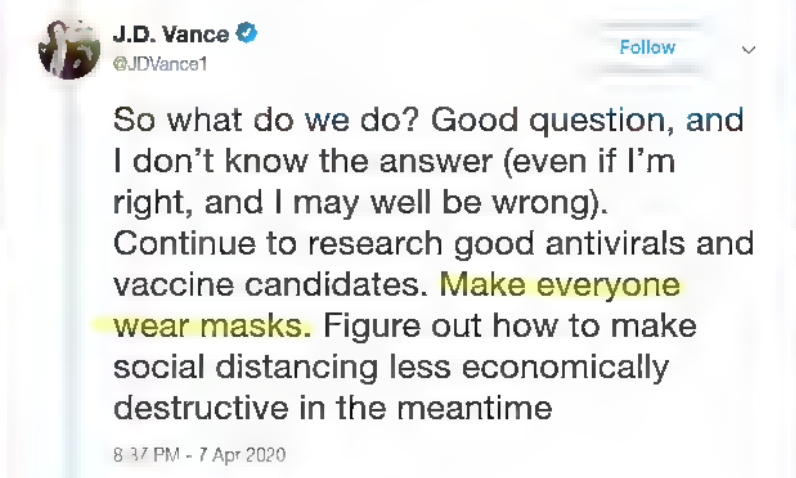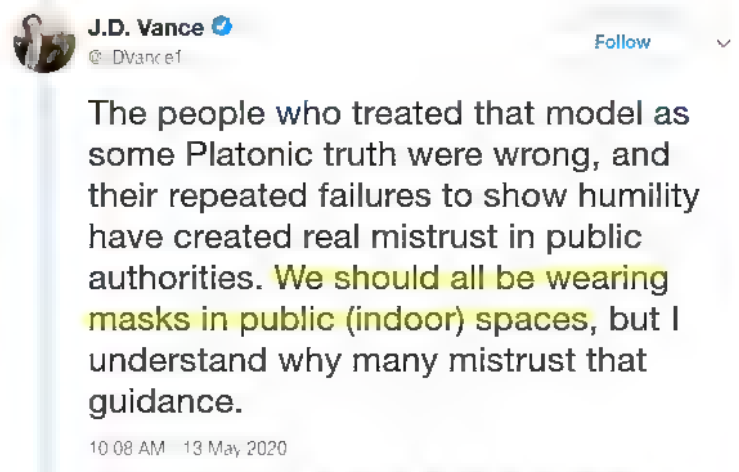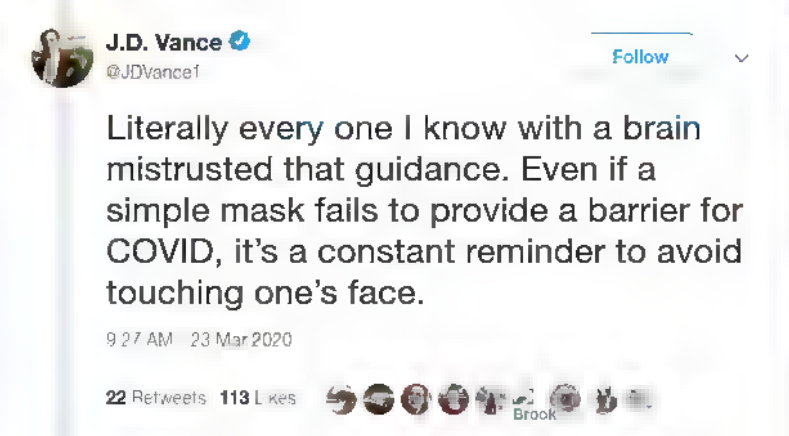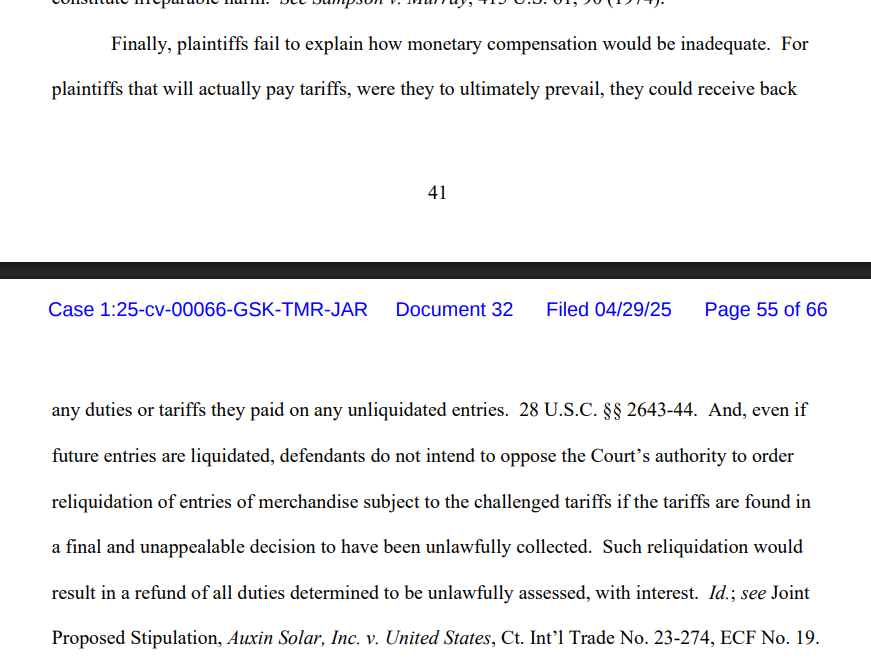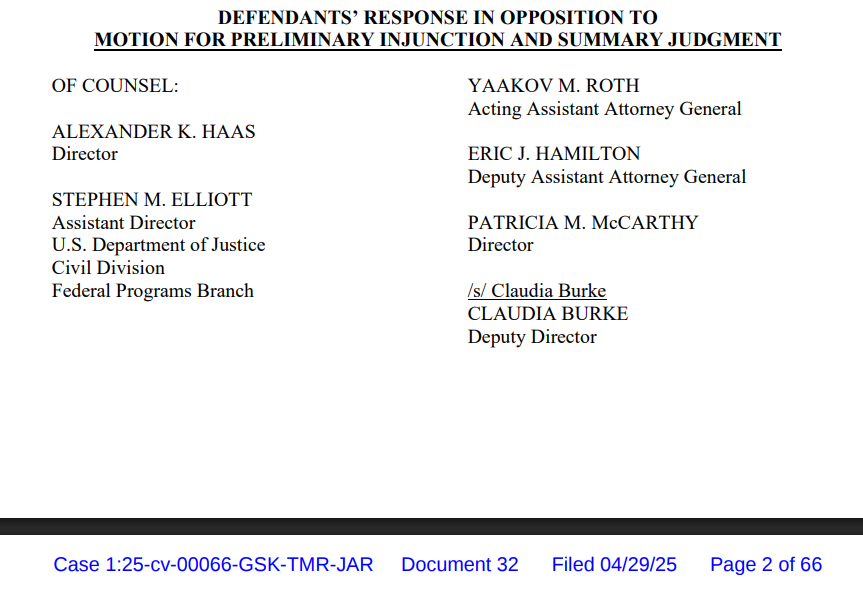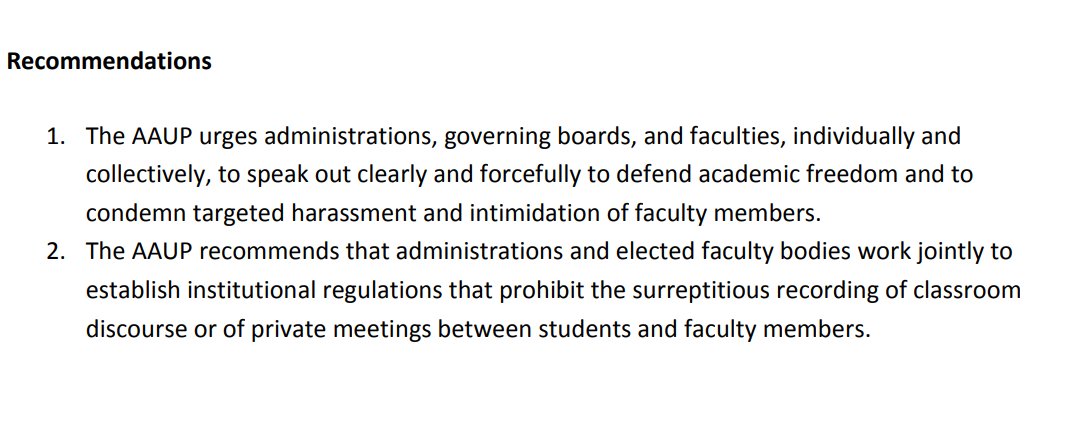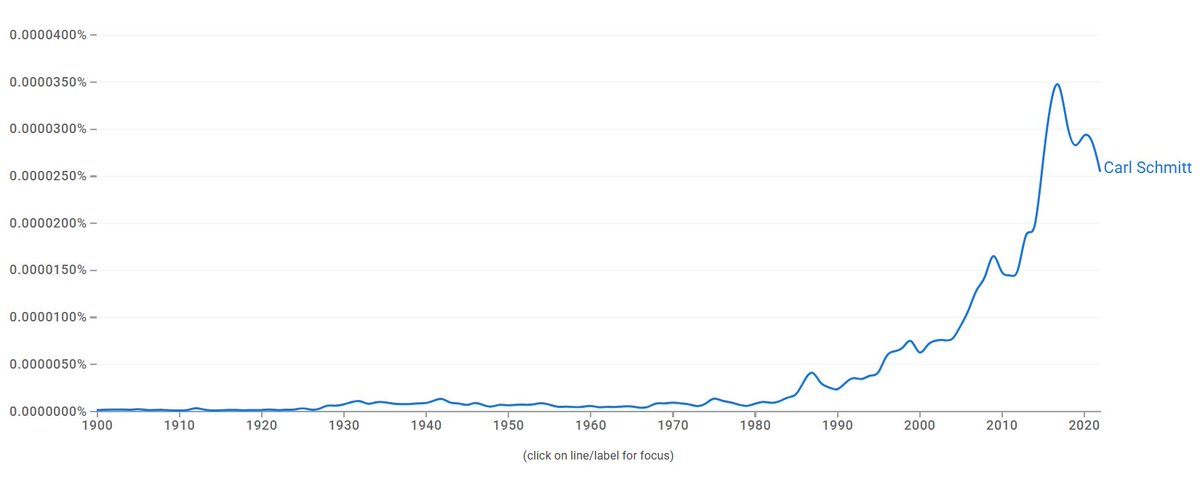Thread summarizing what we've learned so far of the Fauci/Collins email dump on the Great Barrington Declaration:
It starts on 10/14/20 when Collins instructs Fauci and his staff to "take down" the GBD and the "fringe" scientists behind it.
It starts on 10/14/20 when Collins instructs Fauci and his staff to "take down" the GBD and the "fringe" scientists behind it.
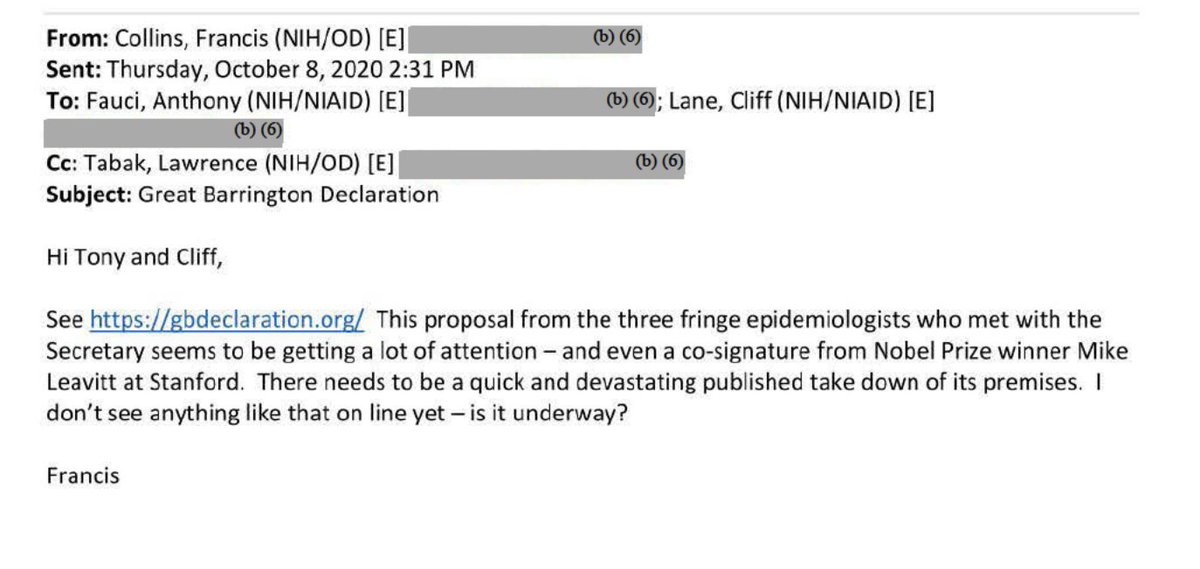
Fauci responds immediately by circulating an article against the GBD from that austere scientific authority, @WiredUK. 
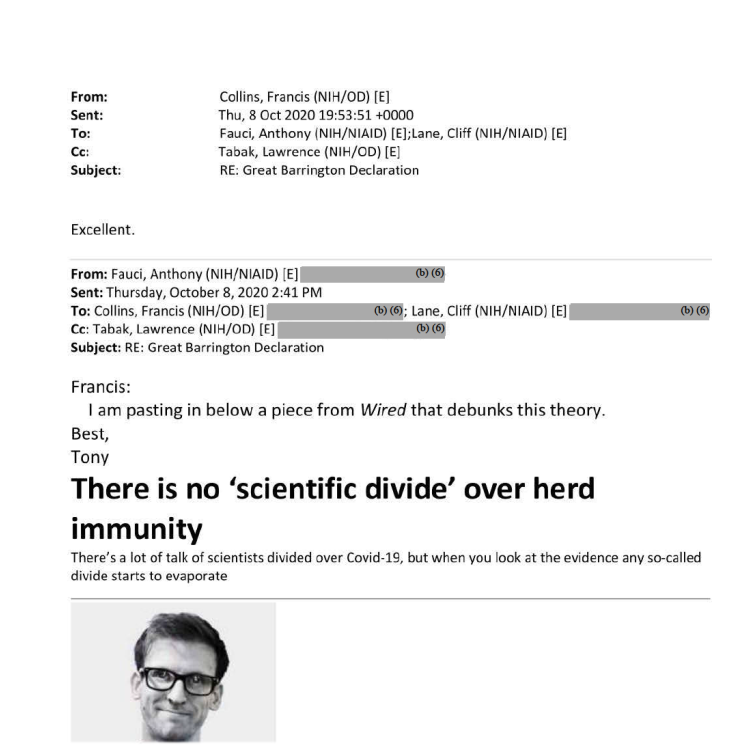
The Fauci-endorsed Wired article is noteworthy for having one of the single worst hot-takes of the entire pandemic. It declared in October 2020 that the GBD should be ignored, because lockdowns were a thing of the past and would not be returning!
wired.co.uk/article/great-…
wired.co.uk/article/great-…
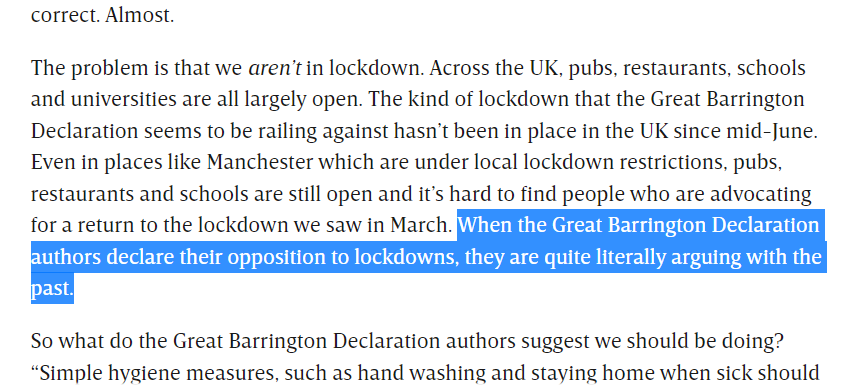
The next day, Fauci sends Collins an angry rant against the GBD in the @thenation by @gregggonsalves.
Collins approves.
Collins approves.
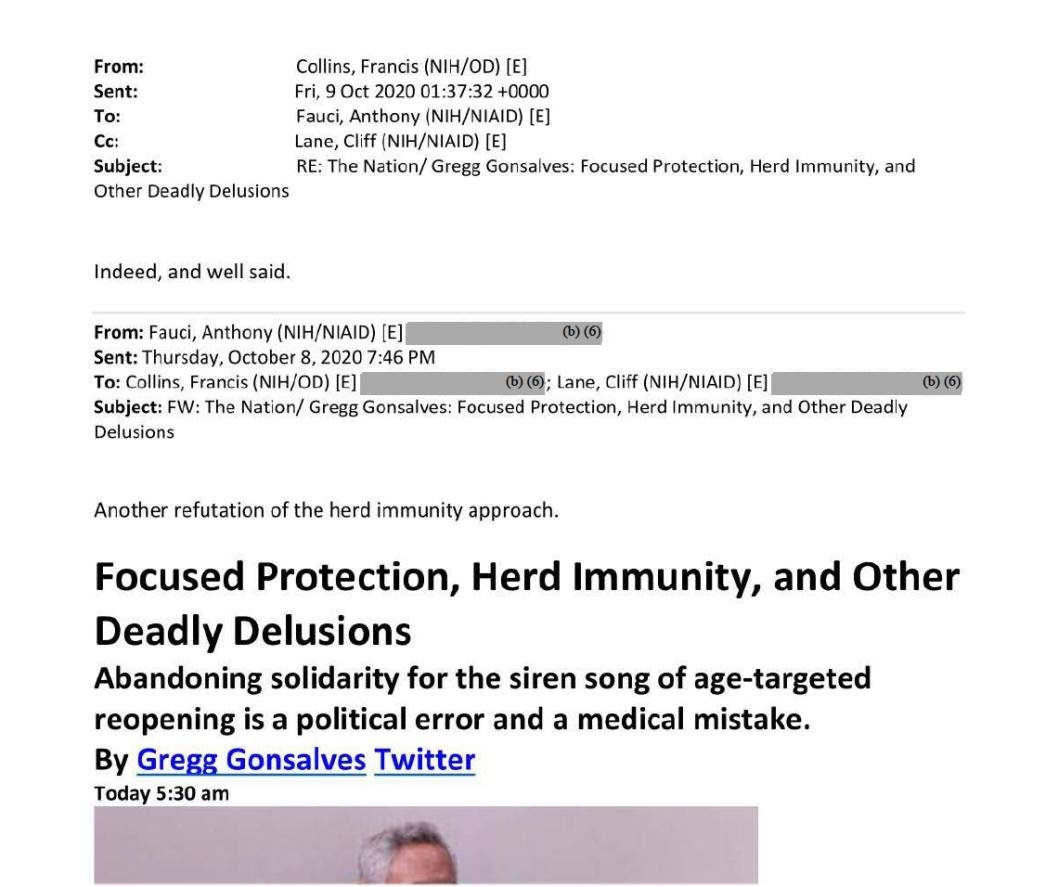
Far from a scientific study refuting the GBD, Gonsalves's article is a political op-ed attacking @jacobin magazine for breaking "solidarity" with other far-left media outlets on lockdowns. Why? Because Jacobin ran an interview with @MartinKulldorff on how lockdowns hurt the poor. 
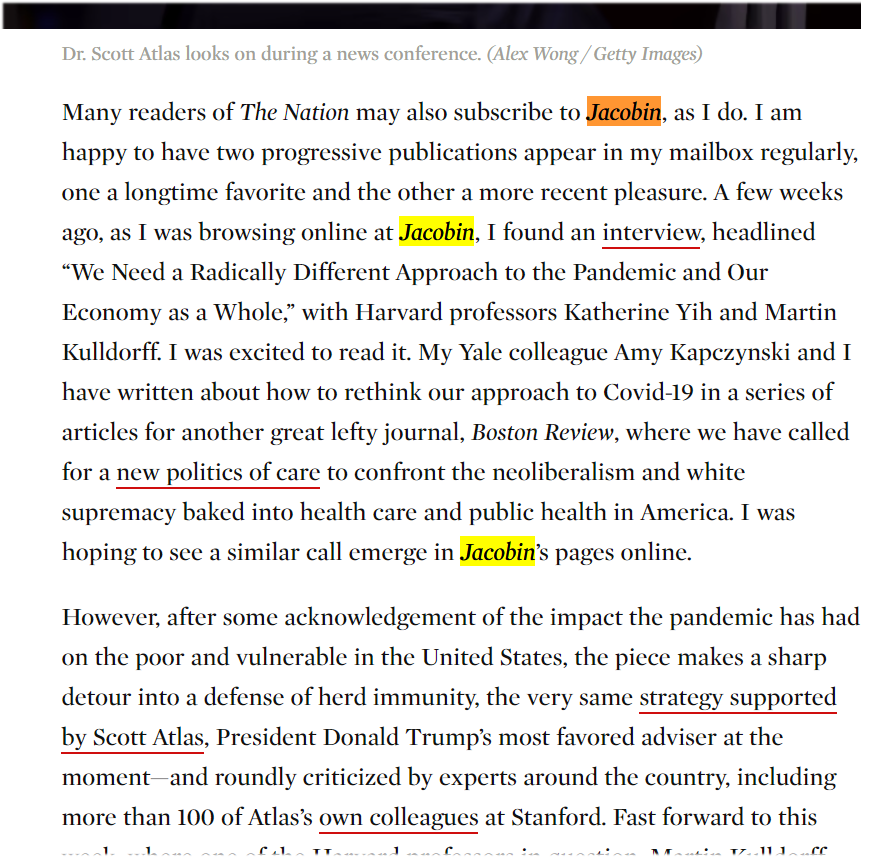
Over the weekend, Collins launches the smear campaign against the GBD in the Washington Post.
washingtonpost.com/health/covid-h…
washingtonpost.com/health/covid-h…
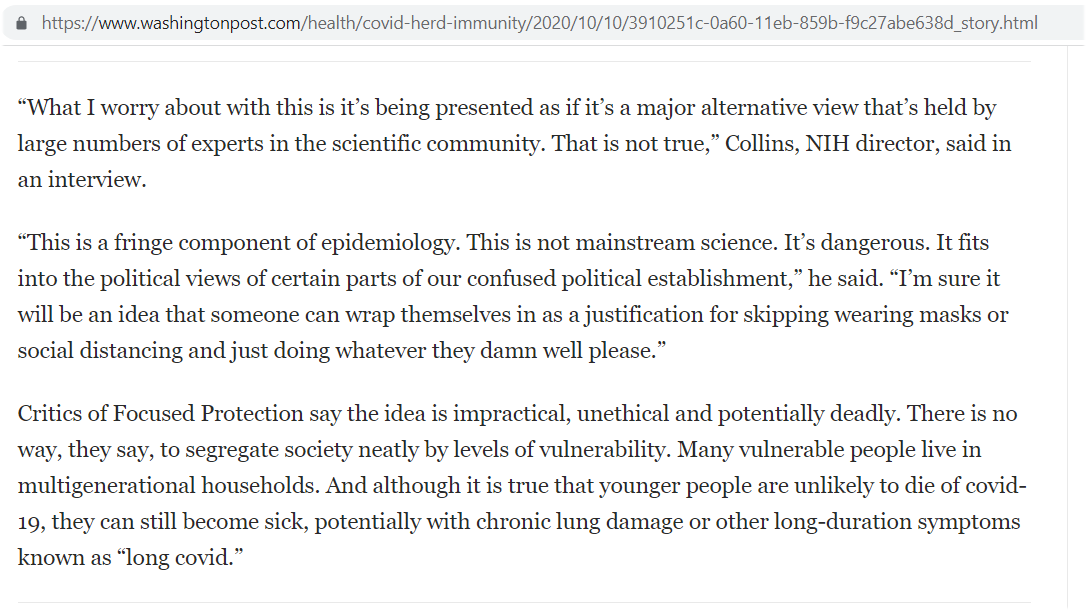
Collins and Fauci email each other about the WaPo hit, with Fauci quipping that the White House was "too busy with other things to worry about this" - perhaps an election reference? - and therefore would not push back on the anti-GBD campaign. 
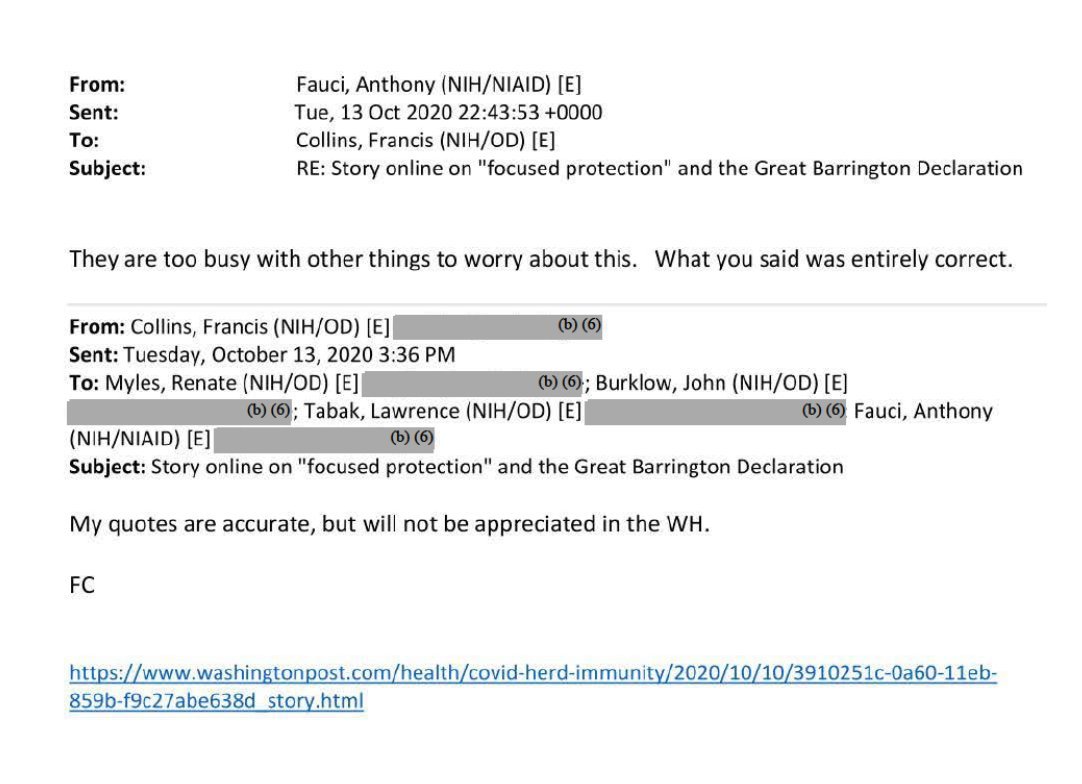
In the meantime, Gonsalves also gets in contact with Collins to volunteer his services (along with future @CDCDirector Rochelle Walensky) to attack the GBD in the media.
Collins approves, and forwards it to Fauci and a bunch of NIH underlings.
Collins approves, and forwards it to Fauci and a bunch of NIH underlings.
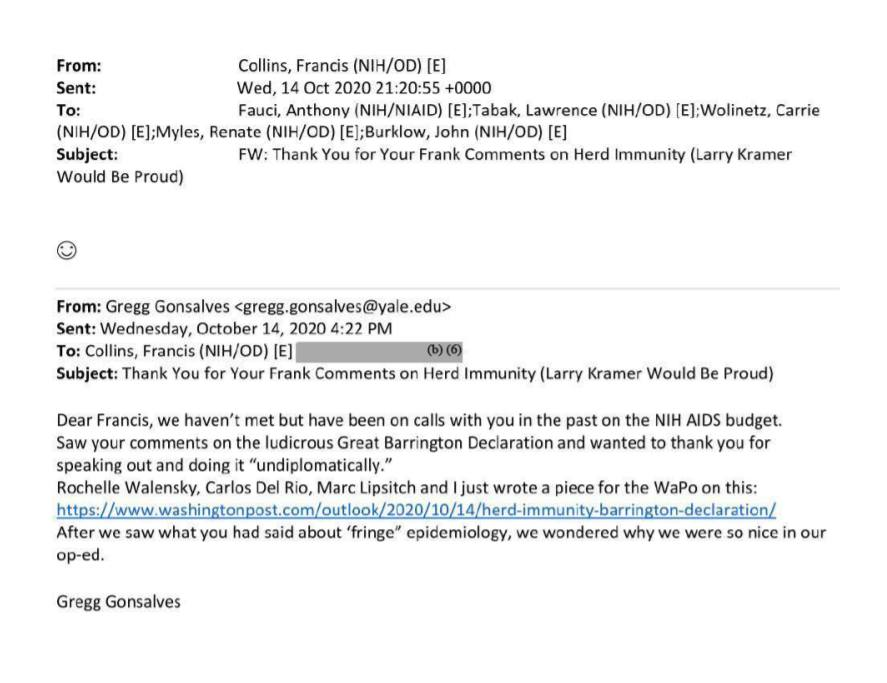
In the meantime, @gregggonsalves was having a public meltdown against the GBD on twitter.

https://twitter.com/gregggonsalves/status/1315767761398890496
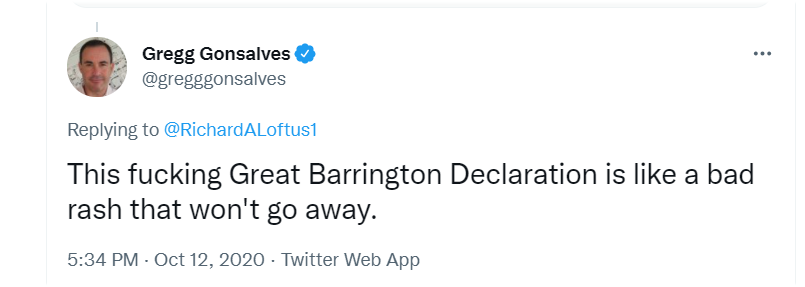
The emails get murky around 10/14/20, because the NIH redacted a bunch of emails that appear to be between Fauci and Collins.
Surrounding context suggests they were discussing how to trash the GBD if it came up at the WH Covid task force meeting on 10/16.
Surrounding context suggests they were discussing how to trash the GBD if it came up at the WH Covid task force meeting on 10/16.

On the morning of the Covid task force meeting, Fauci sends Deborah Birx this email alerting her about the need to oppose the GBD at the meeting. The unredacted part suggests they are preparing to attack @ScottWAtlas, who was perceived as the task force's champion of the GBD. 
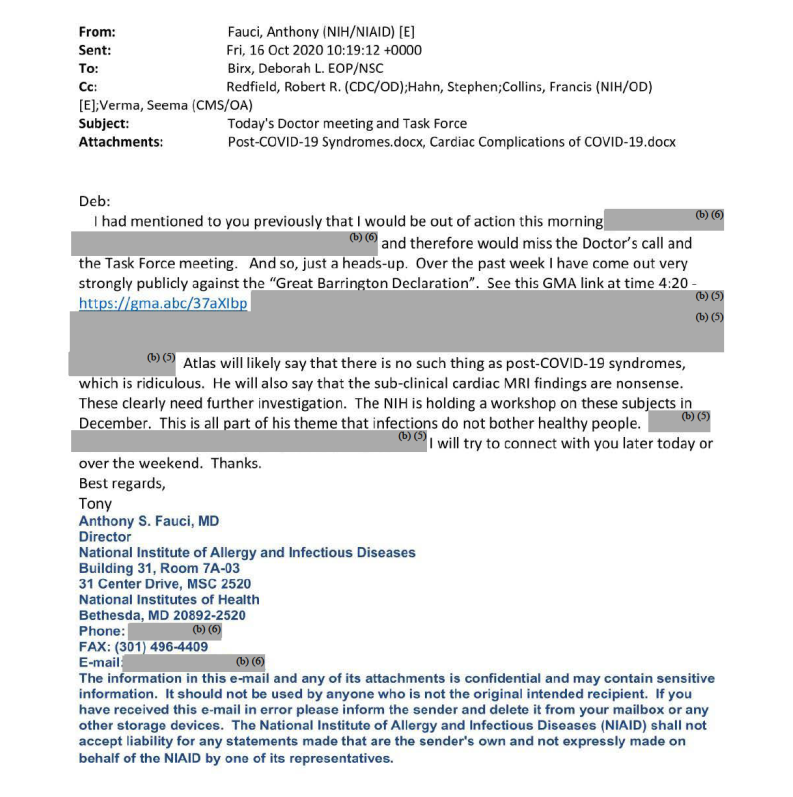
10/16/20 is as far as I've gotten in piecing together the story of what happened. Still more documents to go through, including some more explosive revelations about where Fauci was getting his anti-GBD talking points. So stay tuned!
*typo in the above. The first email about "taking down" the GBD was on 10/8/20 - three days after the GBD broke into the news and went viral.
Here's an update with the next round of emails:
https://twitter.com/PhilWMagness/status/1472320960346963970
• • •
Missing some Tweet in this thread? You can try to
force a refresh


